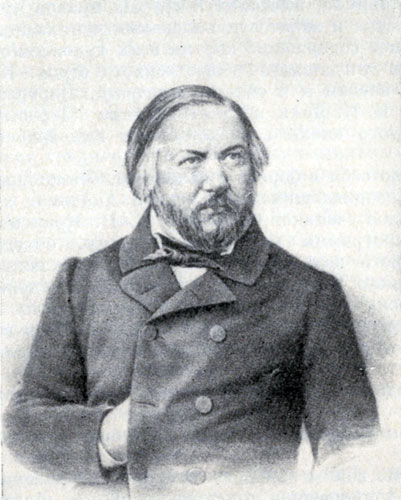Mikhail Glinka - Spanish Overture No. 1 "Capriccio Brilliante on the Jota Aragonesa"

"Mikhail Ivanovich Glinka (1804-1857) - (Russian: Михаи́л Ива́нович Гли́нка) was the first Russian composer to gain wide recognition within his own country, and is often regarded as the fountainhead of Russian classical music. Glinka's compositions were an important influence on future Russian composers and produced a distinctive Russian style of music.
Glinka was the beginning of a new direction in the development of music in Russia. Musical culture arrived in Russia from Europe, and for the first time specifically Russian music began to appear, based on the European music culture, in the operas of the composer Mikhail Glinka. Different historical events were often used in the music, but for the first time they were presented in a realistic manner.
The first to note this new musical direction was Alexander Serov. He was then supported by his friend Vladimir Stasov, who became the theorist of this musical direction.
The modern Russian music critic Viktor Korshikov thus summed up: "There is not the development of Russian musical culture without... three operas – Ivan Soussanine, Ruslan and Ludmila and the Stone Guest have created Mussorgsky, Rimsky-Korsakov and Borodin. Soussanine is an opera, where the main character is the people, Ruslan is the mythical, deeply Russian intrigue, and in Guest, the drama dominates over the softness of the beauty of sound."
Two of these operas – Ivan Soussanine and Ruslan and Ludmila – were composed by Glinka.
Since this time, the Russian culture began to occupy an increasingly prominent place in world culture.
In 1884, Mitrofan Belyayev founded the "Glinka Prize", which was awarded annually. In the first years the winners included Alexander Borodin, Mily Balakirev, Pyotr Ilyich Tchaikovsky, Nikolai Rimsky-Korsakov, Cesar Cui and Anatoly Lyadov.
Outside Russia several of Glinka's orchestral works have been fairly popular in concerts and recordings. Besides the well-known overtures to the operas (especially the brilliantly energetic overture to Ruslan), his major orchestral works include the symphonic poem Kamarinskaya (1848), based on Russian folk tunes, and two Spanish works, A Night in Madrid (1848, 1851) and Jota Aragonesa (1845). Glinka also composed many art songs, many piano pieces, and some chamber music.
A lesser work that received attention in the last decade of the 20th century was Glinka's "The Patriotic Song", supposedly written for a contest for a national anthem in 1833. In 1990, Supreme Soviet of Russia adopted it as the anthem of the Russian Soviet Federative Socialist Republic, which had been the only one of the Soviet republics without its own anthem. Following the dissolution of the Soviet Union, the hymn was confirmed as the Russian national anthem in 1993; it remained until 2000."
Text by Wikipedia.
Испанская увертюра № 1 «Блестящее каприччио на тему Арагонской хоты» (1845) / Spanish Overture No. 1 "Capriccio Brilliante on the Jota Aragonesa"
Orchestra: Prague Symphony Orchestra
Conductor: Jiří Bělohlávek